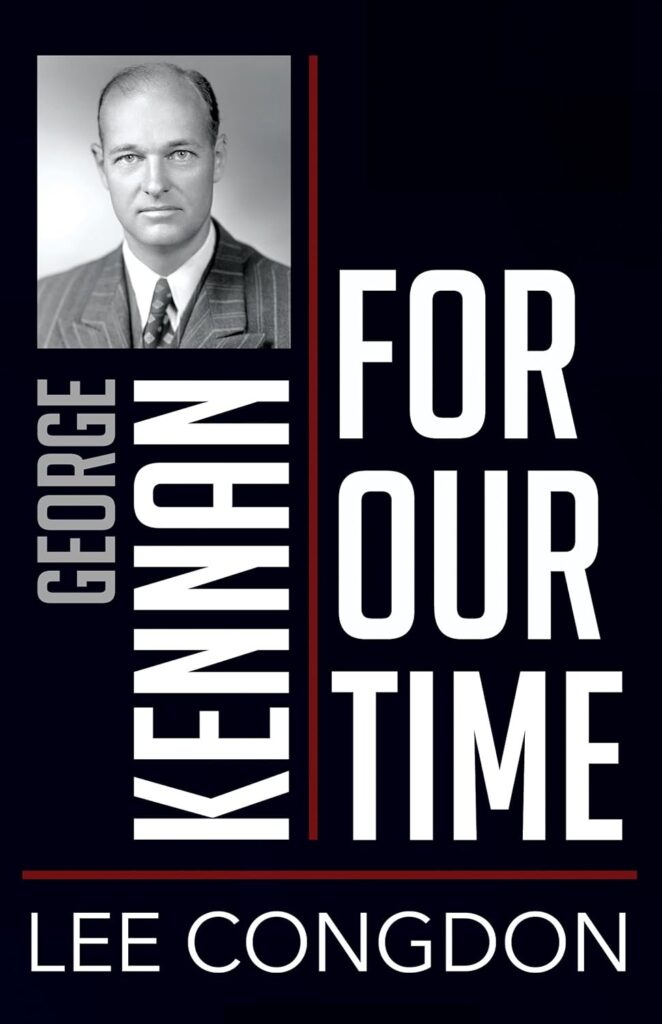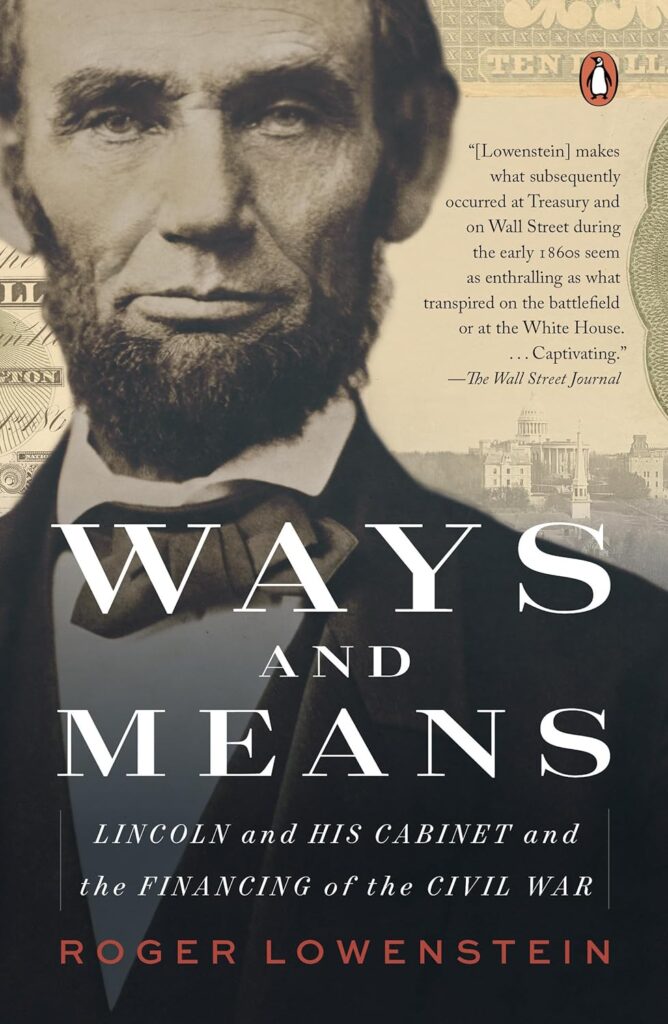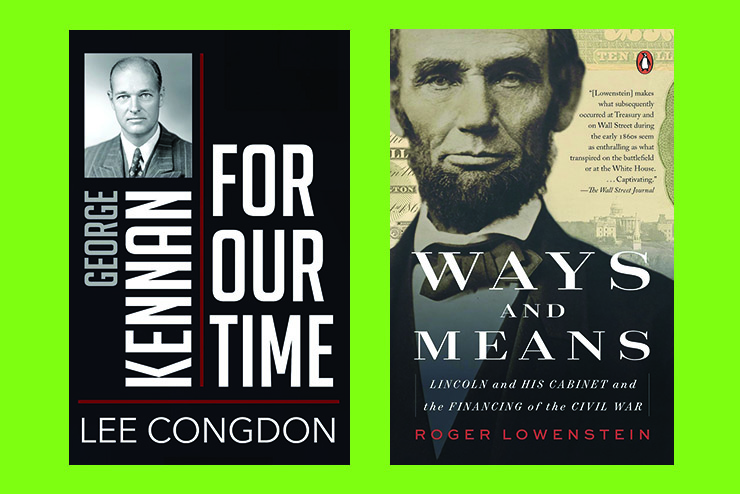
George Kennan for Our Time, by Lee Congdon (Cornell University Press; 232 pp., $19.95). Yale historian John Lewis Gaddis’s 2011 Pulitzer Prize-winning biography of George Kennan has sat unread on my bookshelf for so long that it might have grown roots. The book’s Brobdingnagian heft will require me to find my weightlifting belt before I read about 20th-century America’s foremost diplomat.
Luckily, Cornell University Press’s “People for Our Time” series now includes Lee Congdon’s concise George Kennan For Our Time. After a succinct biographical sketch, the book’s thematic chapters roam across the philosophy of foreign policy, the Far and Near East, Eastern Europe, and, most importantly, Russia, the place from which Kennan penned his world historical “Long Telegram.”
According to Congdon, Kennan defined a diplomat’s primary mission as preventing “apocalyptic war.” He opposed idealistic attempts to “democratize the world.” Instead, he urged the United States to act “only in defense of the national interest, narrowly defined.” Too often, American policy falls prey to its citizens’ “moral enthusiasms” in violation of the timeless guidance of Burke, Tocqueville, The Federalist Papers, George Washington’s “Farewell Address,” and John Quincy Adams’s “Fourth of July Address.” The erudite, multilingual Kennan lacked patience for television and its empty-headed talking heads.
Kennan insisted good policy required a deep knowledge of history. True to his word, he read and wrote about it widely. The Korean War taught him—and seemingly no one else—two lessons: never allow military considerations alone to determine national policy, and always use expert diplomats in “wholly secret, informal, exploratory contacts … between political and military adversaries.” Niebuhr and Spengler devotees will note these thinkers’ deep philosophical influence on him and—thankfully—J.R.R. Tolkien’s counsels against despair.
Congdon also resurrects Kennan’s thoughts on today’s political hot potatoes. His argument for representative government fell on deaf ears when he made it. But you should memorize it for future attacks on the Electoral College, the Constitution, and, let’s hope, the 17th Amendment. Kennan’s realist admonition will enrage human rights fanatics who cry during yoga class because China mistreats the Uighurs: “That is their concern, not ours.”
(Mark G. Brennan)

Ways and Means: Lincoln and His Cabinet and the Financing of the Civil War, by Roger Lowenstein (Penguin Books; 448 pp., $20.00). Eight decades into the postwar era, U.S. defense spending is now nearly $900 billion annually. Wars in Vietnam, Iraq, and Ukraine have shaped this largesse, though it is not widely recognized that the military’s financing mechanisms date to Lincoln’s administration during the Civil War. These mechanisms include the income tax, government debt, and fiat currency unlinked to a commodity.
“Republicans vastly enlarged the government,” Roger Lowenstein notes in this vital book examining the financial consequences of the Civil War. “Lincoln’s party formulated a new notion of what the federal government could do.” During the war, the Republican-led Congress “enacted a blizzard of legislation that made the federal government, for the first time, a visible presence in the lives of ordinary Americans.”
The Civil War supplanted deep-seated American traditions favoring limited government. Lenders eschewed government loans as Lincoln took office, and only notes issued by private banks were circulating currency. But a private banking system was inadequate to finance the cost of war on such a massive scale. U.S. Rep. Elbridge Spaulding (R-New York) pushed for the Treasury to control the U.S. currency. This was, Lowenstein writes, “a conjurer’s trick, it authorized the Treasury to print U.S. Notes to distribute to soldiers, suppliers, and others.” These fiat greenbacks traded at a discount to gold and became “an inverse barometer” for the fortunes of the Union Army.
Tariffs also proved inadequate to fund the war, leading Republicans to pass a new income tax, radically extending federal authority and redefining citizen interactions with Washington. The National Banking Act (1863) created a new national system for government debt. By Spring 1863, that debt totaled $1.1 billion, up from $65 million pre-war, and inflation reached 61.4 percent during the peak war years.
“Contemporary money in the U.S. is very much a descendant of the original greenbacks—paper bills with no intrinsic value other than the full faith and credit of the U.S. government,” Lowenstein writes. Civil War monetary policies predated “the larger interventions of modern central banks.” Like modern administrations, Lincoln’s opposed sound money. With the “people’s faith in the Union’s paper greatly diminished,” many held gold coins, putting pressure on the greenback. To Lincoln, gold speculators were “unpatriotic.” The U.S. suffered a recessionary hangover for much of the two decades following the war due to his fiscal policies.
(Greg Kaza)

Leave a Reply